
When we talk about the quality of olive oil, we’re normally considering whether it’s extra virgin, virgin, or refined. We might also look at how recently the oil was pressed and whether the company has ethical practices. But, olive oil conversations often miss the topic of unfiltered vs filtered olive oil.
This is a shame, as the distinction is an important one. Choosing one over the other can even impact the flavor and quality of your olive oil.
The topic might be unfamiliar, as filtered oil has been the industry standard for a long time. It’s often assumed that filtering olive oil makes it better, reducing the risk of flavor contamination and helping the oil to last longer.
But, times are changing. There’s growing interest in unfiltered olive oil, partly because of the idea that natural is always best. Is it, though? Is unfiltered olive oil actually a superior choice or should you still stick with the filtered version? That’s what we’re going to talk about today.
P.S. If olive oil is something that excites you, why not try out an olive oil of the month club? These services ship bottles of olive oil out to you each month, sometimes with extra items as well.
They’re an amazing way to enjoy high quality olive oil, including extra virgin olive oil and sometimes freshly pressed oil. The products are often much better than what you’ll find in your local store. You may even find some unfiltered products in the mix.
How Olive Oil Is Made

To closely look at the differences between unfiltered and filtered olive oil, we need to begin with how olive oil is produced.
The first step is for the oils to be picked, sorted, and cleaned. After the olives are clean, the oil needs to be extracted, which involves grinding the olives to create a thick paste. The olives aren’t depitted first, so there’s a lot going into the paste.
Once the olives have been ground, the paste goes through malaxation and centrifugation processes that create the finished oil.
There’s plenty of room for variation along the way. Some companies focus on mechanical and human-based processes whenever possible, like picking fruit by hand and avoiding any form of chemical extraction. Others may avoid chemicals, but still use machines to pick fruit.
All of these decisions influence the final flavor profile of the olive oil. The time of harvesting and quality of olives play important roles as well.
There’s one final step before bottling – filtration or racking. These processes both help to remove any remaining sediment from the olive oil, to give you a clear product.
Filtering is always a physical process, where the olive oil goes through some type of medium (like cellulose pads). This means the chemical structure of your olive oil isn’t changed at all and all the health benefits remain.
The physical nature of the process is also why olive oil can be filtered and still be classified as extra virgin olive oil.
Why Is Olive Oil Filtered?
Olive oil filtration is meant to improve the oil. By removing any solid particles, filtered olive oil should last longer and have a better flavor profile. It looks better too.
Filtering is also common simply because it is the industry standard and consumers have come to expect it. So, many companies may filter their olive oil as a matter of course, without weighing up the pros and cons of doing so.
Differences Between Filtered And Unfiltered Olive Oil

Appearance
The most obvious difference is the appearance. While regular olive oil is transparent, unfiltered olive oil is cloudy instead.
This effect is partly because of the water droplets in the oil, which create an emulsion of water in the oil. There are also plant residues and seed particles in the oil. These form suspensions that add to the oil’s cloudiness.
The appearance of unfiltered olive oil will change a little over time as the sediments settle. This can give you a layer at the bottom of the bottle, just like with orange juice. Shaking the oil is enough to redistribute the sediment.
Which type looks better? That comes down to personal preference. Some people find the cloudiness of unfiltered olive oil appealing, while others prefer clear filtered oil instead.
Shelf Life
The residues found in unfiltered olive oil don’t just affect the oil’s appearance. They’re relevant to the shelf life too.
In particular, unfiltered olive oil is much more delicate. It doesn’t last as long as the filtered version and is even more sensitive to direct light and heat.
You’ll often get anywhere from 18 to 24 months from a bottle of filtered olive oil, while unfiltered olive oil may last just a few months in similar conditions. Unfiltered olive oil that’s left longer than this often won’t taste good and may even be dangerous.
Flavor
There’s a flavor difference as well. Some people prefer unfiltered olive oil to the filtered versions, as the extra sediment may make the oil fruitier and more vibrant.
However, this is only true when the oil is fresh. Because unfiltered olive oil has a much shorter shelf life, it will lose its flavor faster.
The Categorizations

Filtered olive oil falls into extra virgin, virgin, and refined categories. To be considered extra virgin, olive oil must meet strict quality standards and have been produced using mechanical rather than chemical methods. Virgin is a step down in terms of quality, while refined oil has been through some chemical steps.
Most unfiltered olive oil won’t be extra virgin, as the residues in the oil make it difficult to meet the quality standards needed for extra virgin. It probably won’t be refined either, as the companies that focus on unfiltered oil tend to care about natural products.
These patterns mean that most unfiltered olive oils will be virgin olive oil or they will simply be labeled as olive oil. Of course, there are exceptions. Some companies have successfully made unfiltered olive oil that can be classified as extra virgin olive oil.
Differences Between Brands
Filtered olive oil does tend to be clearer, last longer, and have a slightly milder taste than unfiltered oil. However, those are just generalizations.
The real-world differences between filtered and unfiltered olive oil will vary depending on your chosen brand. For example, some high quality unfiltered olive oils may last up to a year, while some low quality filtered olive oils might not last that long.
Even the flavor of the olive oil can vary dramatically between products. You may even notice a greater difference from one brand to the next than between filtered and unfiltered oil.
Is Unfiltered Olive Oil Healthier?
Whether filtered or not, olive oil offers plenty of benefits. This is particularly true for extra virgin olive oil, which is rich in antioxidants and polyphenols. These plant-based compounds can help to decrease inflammation and improve health in a variety of ways.
Olive oil is also a rich source of monounsaturated fats. These healthy fats are thought to decrease heart disease risk, especially when they’re consumed instead of saturated fats.
Unfiltered olive oil could be the most powerful. After all, it contains plant residues that you don’t find in filtered oil. These could provide extra beneficial compounds and have a stronger effect on your health.
However, this effect isn’t proven. Very few studies have compared these types of oil at depth. Even if unfiltered olive oil is more powerful than filtered, the difference might be too small to impact your health much at all.
Here’s another thing. Most reports that unfiltered olive oil is better comes from companies selling this oil. So, there’s a clear bias to the claims.
What does this mean in practice?
Well, you could still buy unfiltered olive oil for health benefits. It’s going to have the same health benefits as regular olive oil, so you’re not losing out. Just don’t expect unfiltered olive oil to be amazingly better than the regular stuff.
Video: How Traditional Olive Oil Is Made
You gotta watch how they separate the water, oil, and solids using the hydraulic press starting at 2:00 in the video. Super interesting.
How Do You Use Unfiltered Olive Oil?

Unfiltered olive oil can be used exactly like regular olive oil. This means you can use it in vinaigrettes, can drizzle it over salads and pasta, can dip bread in it directly, and use it in plenty of other ways.
It’s even possible to infuse an unfiltered olive oil. Doing so provides extra flavor, which is especially relevant if you’re planning to dip bread in the oil.
Homemade infused olive oil generally lasts just a few months and sometimes less. But, it’s still worth doing if you go through the oil fairly quickly.
What About Cooking With The Oil?
There’s more debate about cooking and baking with unfiltered olive oil.
We’re often told that olive oil has a low smoke point and is dangerous to cook with. Yet, the smoke point of extra virgin olive oil ranges from 350°F to 410°F, which makes it moderate rather than low.
Plus, olive oil has high oxidative stability. This means the compounds strongly resist being oxidized. The effect is important, as oxidation at high heat is what creates harmful compounds during cooking.
The combination of moderate smoke point and high oxidative stability actually makes olive oil an amazing choice for cooking. But, most of the data relates to filtered oil, not unfiltered.
While unfiltered olive oil is likely to have similar oxidative stability and smoke point, the sediment in the oil may burn faster than the rest of the oil. This effect makes it a poor choice for cooking.
Because of this, it’s best to stick to raw uses of unfiltered olive oil. If you’re going to cook with it, use low heat techniques and keep an eye out for any smoke.
Should You Use Unfiltered Olive Oil?
Unfiltered olive oil has some advantages, as it’s less processed than regular olive oil and may contain more antioxidants and polyphenols. This could even make the oil better for you (in theory, anyway).
Some people prefer the flavor of unfiltered olive oil too, saying that it tastes brighter and fruitier.
However, unfiltered olive oil has a much shorter shelf life and will often just stay good for a few months. If you use your olive oil quickly, this short shelf life shouldn’t be a problem.
Unfiltered olive oil is also a little trickier to cook with, as the sediment in the oil can catch in the pan. It may be best to use the oil raw instead or focus on low heat cooking.
Because the health differences between unfiltered and filtered olive oil haven’t been proven, the best type is simply related to personal preferences. If you prefer the taste of unfiltered olive oil to the filtered stuff, then go with that. If you’re content with filtered olive oil, there’s no harm in sticking with the filtered version.
Don’t forget about where the olive oil comes from either.
Olive oil has a complex flavor, just like wine and coffee. The flavor is influenced by many things, including the soil the trees were grown in, how the oil was produced, the packaging, and many other factors. This means that olive oils can differ dramatically from each other. It’s worth taking time to find an oil you love from a company you trust, regardless of whether the oil is filtered or unfiltered.

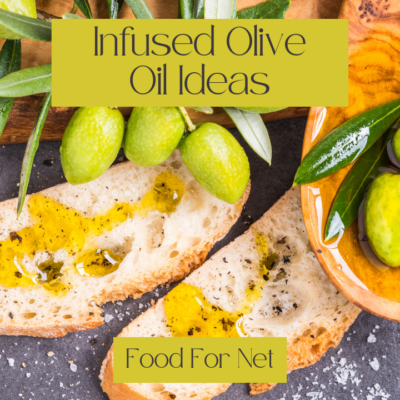
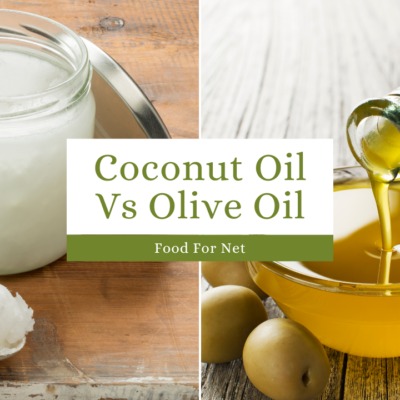

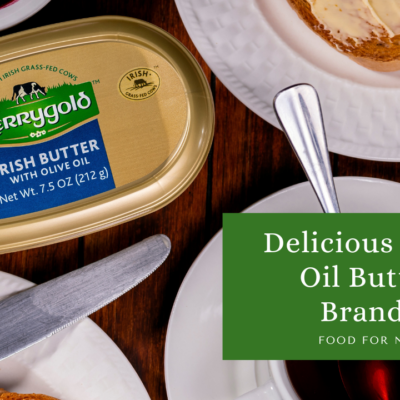
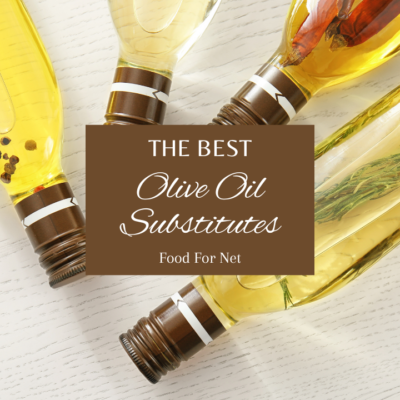

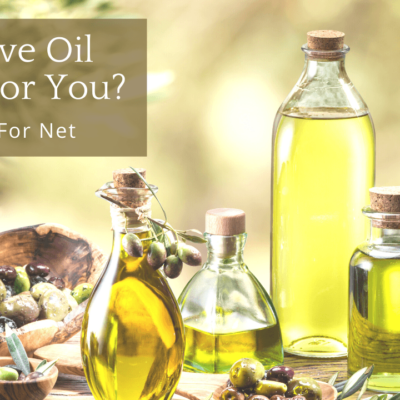
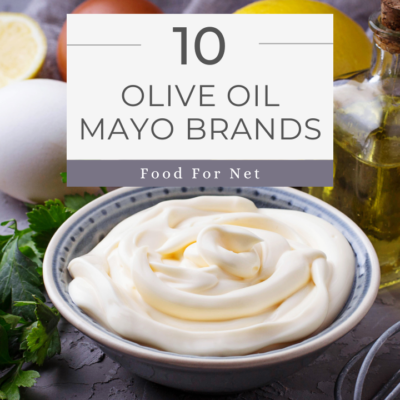
 29 Fabulous 3 Ingredient Desserts
29 Fabulous 3 Ingredient Desserts
Leave a Reply